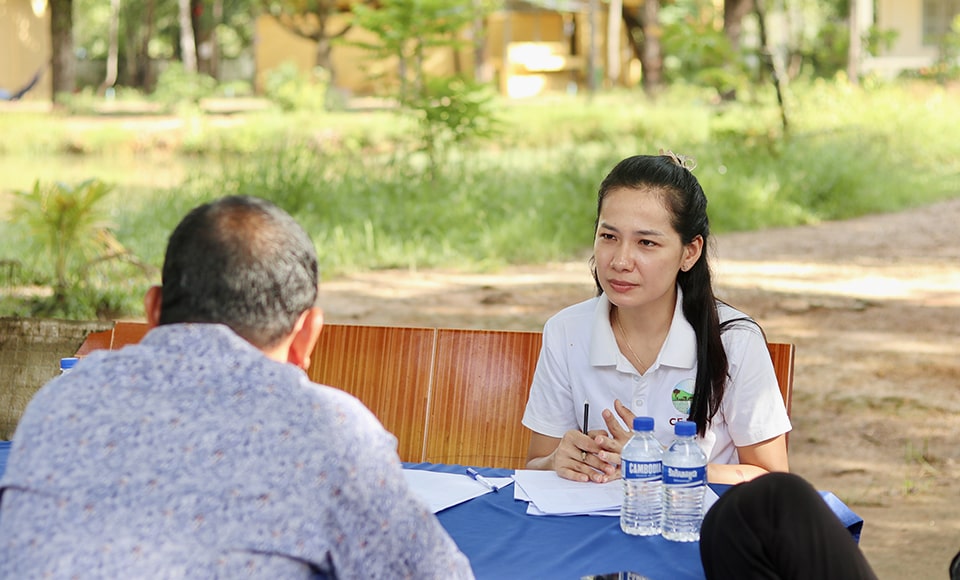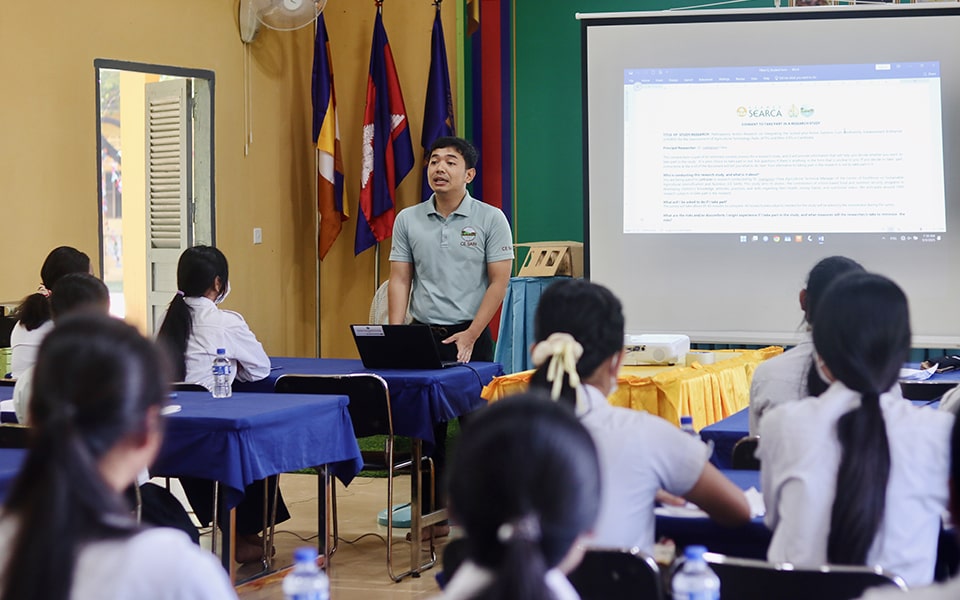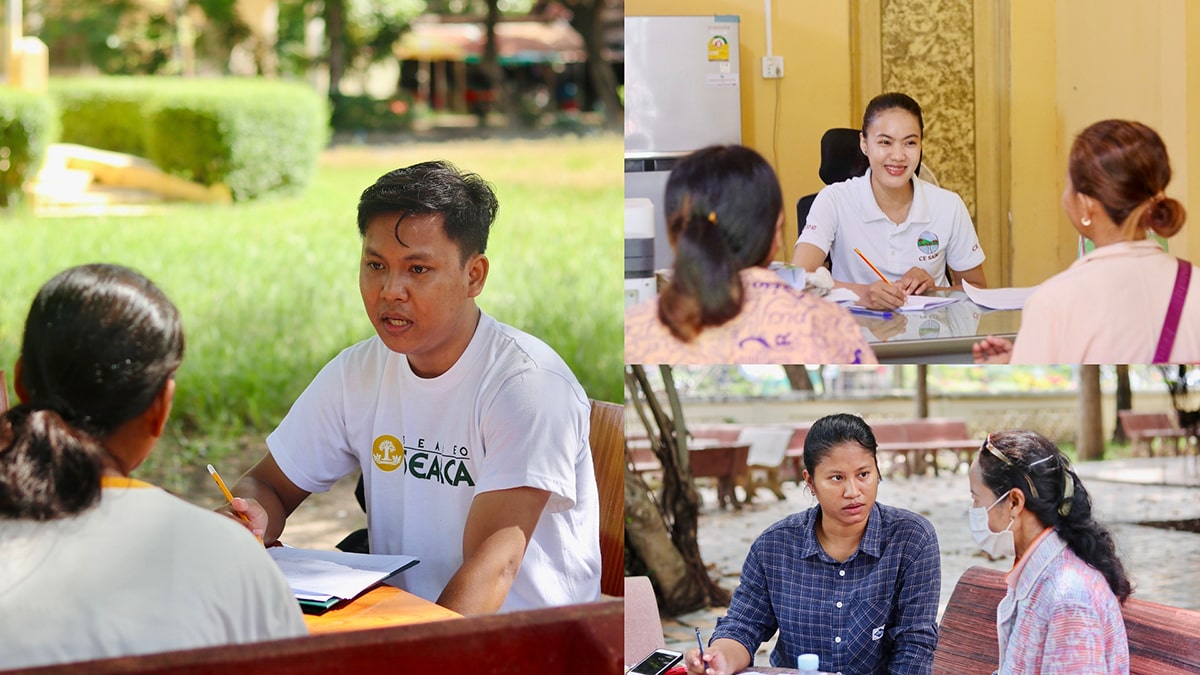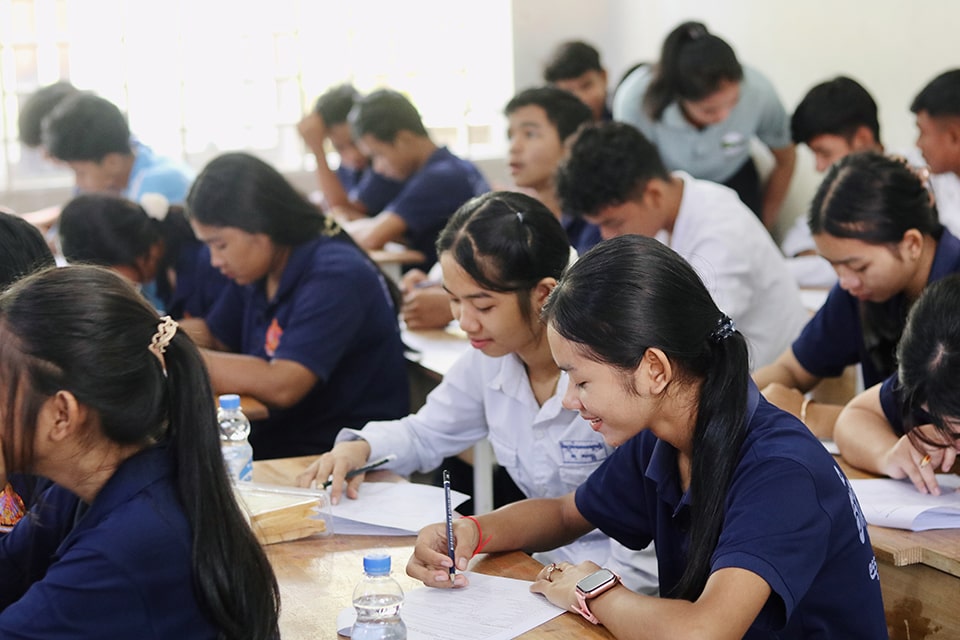 An enumerator from CE SAIN interviews a mother at Raksmey Sophanna High School in Kampong Thom, Cambodia.
An enumerator from CE SAIN interviews a mother at Raksmey Sophanna High School in Kampong Thom, Cambodia.
KAMPONG THOM and SIEM REAP, Cambodia—The Southeast Asian Regional Center for Graduate Study and Research in Agriculture (SEARCA), in collaboration with the Center of Excellence on Sustainable Agricultural Intensification and Nutrition (CE SAIN), has undertaken a baseline study as part of the School-plus-Home Gardens cum Biodiversity Enhancement and Enterprise (SHGBEE) Project in Cambodia. The study is a foundational step in assessing the current conditions of selected pilot sites and generating evidence-based insights to guide project implementation and monitoring.
 An enumerator from CE SAIN facilitates the survey of students at Raksmey Sophanna High School in Kampong Thom, Cambodia.
An enumerator from CE SAIN facilitates the survey of students at Raksmey Sophanna High School in Kampong Thom, Cambodia.
The initial phase of the baseline study involved profiling of pilot school gardens at Raksmey Sophanna High School and Samdech Euv High School, along with their associated mini-Agricultural Technology Parks (ATPs). This was carried out through structured site visits designed to gather comprehensive baseline information. For two other pilot schools—Institute of Community Development and Chea Sim Tbeng Meanchey—data collection will be conducted through online surveys to ensure inclusivity despite logistical constraints.
 A series of interviews was conducted with parents at Raksmey Sophanna High School and Samdech Euv High School.
A series of interviews was conducted with parents at Raksmey Sophanna High School and Samdech Euv High School.
The assessment documented key features of each school garden, including size, geographic layout, crop varieties cultivated, irrigation systems, and waste management or composting practices. It also examined the adoption of agricultural technologies and biodiversity-enhancing practices that promote sustainability and resilience. A Knowledge, Attitudes, and Practices (KAP) survey was administered to students to establish their baseline understanding and behaviors related to vegetable production, school and home gardening, and healthy dietary practices. The survey examined routine activities such as planting, harvesting, and vegetable consumption, providing insights into the students' familiarity with agricultural practices and nutritional awareness.
 Students of Samdech Euv High School in Siem Reap participate in the survey.
Students of Samdech Euv High School in Siem Reap participate in the survey.
In parallel, trained CE SAIN enumerators conducted household-level surveys with parents. These surveys collected detailed information on household food expenditures, dietary diversity, sources and frequency of vegetable consumption, and overall household food security status. To ensure rigor and comparability, the Food Insecurity Experience Scale (FIES) and other internationally recognized indicators were applied.
Beyond dietary and expenditure data, the surveys also explored household resilience and adaptive practices. This included an coping strategies during food scarcity and involvement in complementary activities such as home gardening, composting, and seed saving. These dimensions provide a more comprehensive understanding of how households secure and sustain their food sources while contributing to ecological balance and resource efficiency.
Findings from both the KAP and household surveys will guide the design of targeted interventions under the SHGBEE Cambodia Project. In particular, they will help strengthen the project's nutrition-sensitive and climate-resilient approaches while fostering greater participation among students, families, and communities in achieving food and nutrition security.